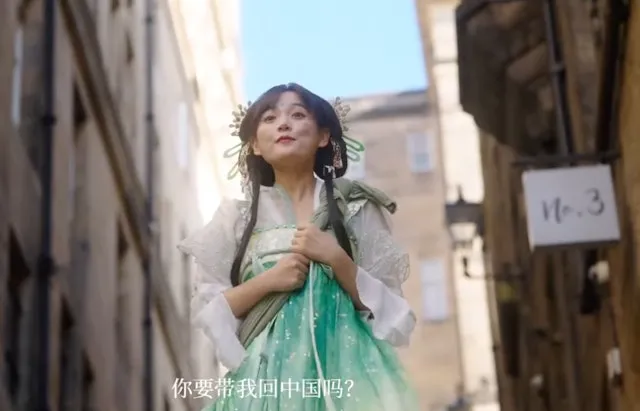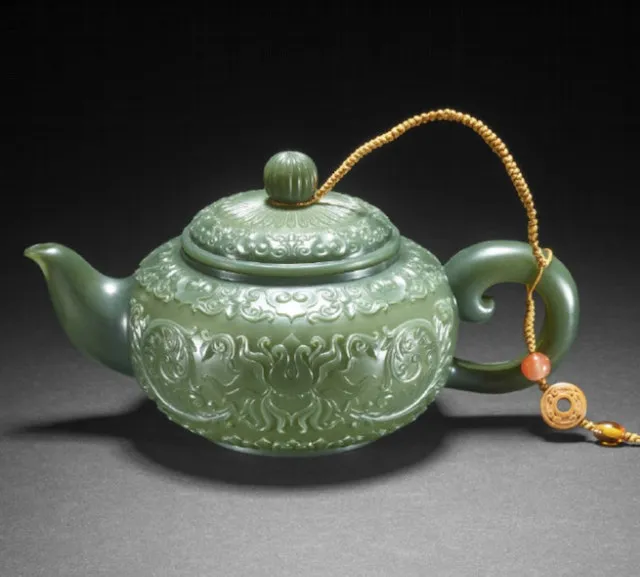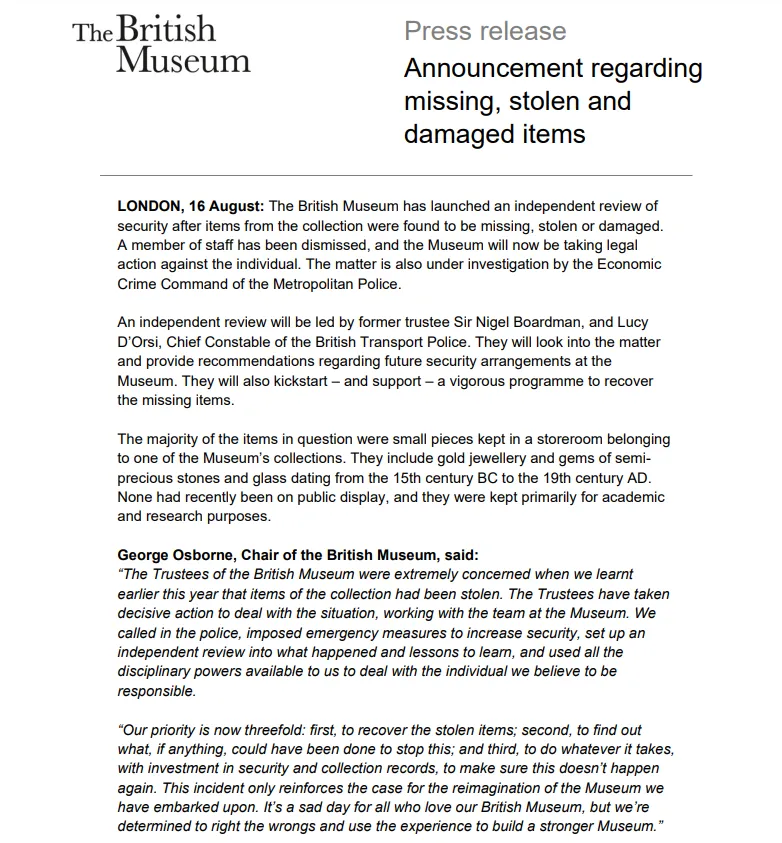Physical Address
304 North Cardinal St.
Dorchester Center, MA 02124
Physical Address
304 North Cardinal St.
Dorchester Center, MA 02124
Recently, an animated short film series called “Escape from the British Museum” has gone viral on Chinese social media. On August 27, when the first teaser trailer of “Escape from the British Museum” was released, it gained over 3 million views instantly and sparked extensive discussion. Many netizens even commented that its production quality matches that of movies. The three episodes have exceeded 250 million views on Douyin, and the related hashtag #逃出大英博物馆# has amassed over 1.13 billion views.
Spanning less than 20 minutes in total, this short film series is co-created by two Chinese online content creators, @煎饼果仔 and @夏天妹妹. Adopting a personification approach, “Escape from the British Museum” tells the story of a 中国玉壶 Chinese Jade Teapot (@夏天妹妹) escaping from the British Museum and accidentally encountering Zhang Yong’an (@煎饼果仔), a Chinese journalist working overseas, who helps her return to China and complete the mission assigned by the Chinese artifacts in the museum.




While artistically presenting the plight of artifacts lost overseas, this short film has struck a chord among many netizens for encapsulating their profound national sentiment.
To many viewers, “Escape from the British Museum” contains no sappy romantic plot, just the simple wish of bringing artifacts home. The vase’s line “Family! I’ve wandered outside for so long and got lost!” touched many to tears.
As the story unfolds, audiences also discover the ingenuity embedded in “Escape from the British Museum”:
The vase’s dirty face represents how most Chinese artifacts in the British Museum are not protected by glass shields and can be freely touched.
She emphasizes “I’m a celadon double-gourd vase” because many Chinese artifacts are only identified by numbers without names in the British Museum.
She exclaims at the “huge cabinet (room) for just two people” because the overwhelming amount of Chinese artifacts forces several to squeeze into one cabinet in the museum.
Hearing the journalist’s name “Li Yong’an”, she murmurs “Yong’an, Yong’an” as there is a relic inscribed “Eternal Peace and Security of the Country” in the British Museum.
The inspiration for this short film series came from a viewer’s comment suggesting “making an animated film called ‘Escape from the British Museum’, personifying the artifacts and bringing them to life to flee the museum and return home for New Year’s celebrations…”
@煎饼果仔 simply responded “Wait for me” and collaborated with his partner to travel to the UK for shooting over three months, finally materializing this beautiful idea and gaining unimaginable attention.
To film this production, @煎饼果仔 and @夏天妹妹 paused updates during the peak of their online popularity for 3 months. As @煎饼果仔 said: “Some things require our full attention.” He feels that “(this) is a commitment, the enthusiasm of online content creators, a spur-of-the-moment decision between teenagers, and the sincere goodwill of sparing no expense.”
Upon the initial release of this mini-drama “Escape from the British Museum”, the British Museum became embroiled in another theft scandal. Meanwhile, the hashtag #请把所有通过非正规渠道获取的中国文物无偿归还中国……# also trended on Chinese social media.
The Global Times has formally requested the British Museum: “请把所有通过非正规渠道获取的中国文物无偿归还中国……”
In fact, the British Museum suffered a major incident of stolen artifacts recently, with 2,000 pieces gone missing. This is the 6th theft in just 30 years.

Back in 2012, Jackie Chan filmed a movie called “Chinese Zodiac” to let the world know the importance of Chinese artifacts that solely belong to China. Fortunately, after the movie, the French Pinault family did return the rabbit and rat heads from the zodiac set.
Therefore, there is a saying on Chinese social media: “No Chinese can smile while walking out of the British Museum.”
According to the China Cultural Relics Association, over 10 million Chinese artifacts have been lost overseas since the Opium Wars. The British Museum website shows it currently houses over 230,000 Chinese artifacts, with around 2,000 on permanent display, less than one-tenth.
From the jade cong and axe of the Neolithic Age, bronzes of the Shang and Zhou dynasties, mirrors, ceramics, lacquerware and iron swords of the Qin and Han periods, to porcelain of the Tang and Song periods and gold and jade articles of the Ming and Qing periods..
逃出大英博物馆 Escape from the British Museum
中国玉壶 The Chinese Jade Teapot
家国永安
回家 Go home
“煎饼果仔”
Bilibili@煎饼果仔呀
Douyin@煎饼果仔
Xiaohongshu@煎饼果仔(本人)
“夏天妹妹”